Koon Woon Reads to the Dead, Is Heard by the Living
P&W-supported poet Koon Woon, October’s Writer in Residence, was born in a timeless village in China in 1949. In 1960 he immigrated to Washington State, first to the logging town of Aberdeen, then to Seattle, where he now resides. He turned to poetry while he was a mathematics and philosophy student coping with mental illness. Later he attended the workshops of Nelson Bentley at the University of Washington. At the age of forty-eight, Koon’s first book, The Truth in Rented Rooms, was published by Kaya Press. 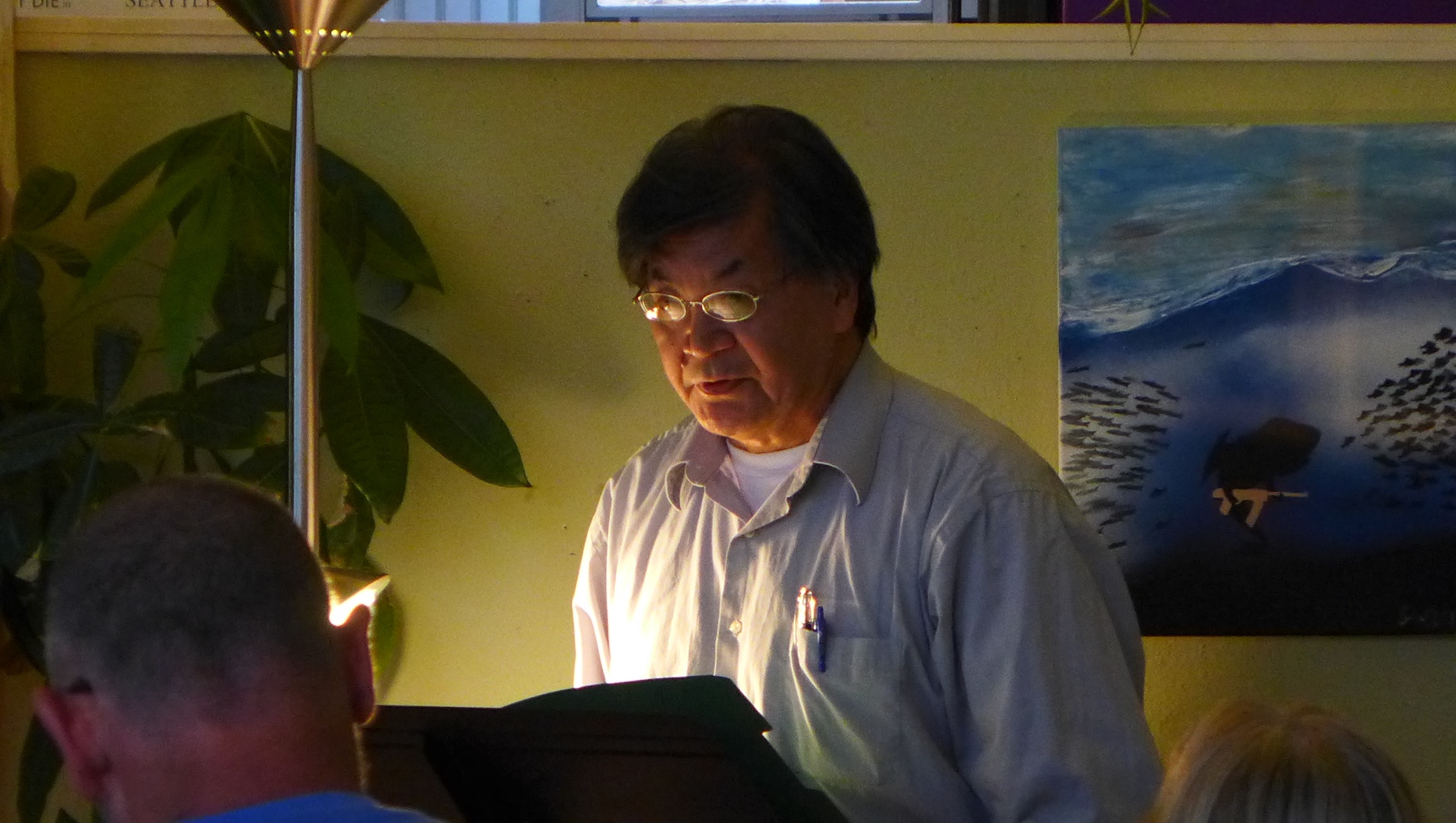 My most recent reading in Seattle—a production of the Chrysanthemum Literary Society with support from Poets & Writers, featuring several Kaya Press writers—took place at two venues: Elliott Bay Book Company and Bruce Lee’s gravesite.
My most recent reading in Seattle—a production of the Chrysanthemum Literary Society with support from Poets & Writers, featuring several Kaya Press writers—took place at two venues: Elliott Bay Book Company and Bruce Lee’s gravesite.
Before the reading, I met Kaya Press editor Sunyoung Lee in the Chinatown-International District, and we went to the Mon Hei Bakery for “egg tarts,” a type of egg custard and the title of one of my poems about bicultural adaptation. We had tea in Styrofoam cups at an economy cake shop, followed by wonton noodles at Mike’s Noodle House, across from the Grand Pavilion at Hing Hay Park. That site appears in my poem as the place pigeons flock and the orphans of the world meet.
When Sunyoung and I were fortified, we had three more missions for the day.
The first was the aforementioned pilgrimage to Lakeview Cemetery at the peak of Capitol Hill. We found the gravesites of Bruce Lee and his son Brandon, and Sunyoung unexpectedly asked me to read a poem. I read “Fortune Telling” from my book The Truth in Rented Rooms, a poem about my father and the hard-working Chinese immigrants of his time. As I read, planes flew overhead and rain began to fall. The Chinese say that Heaven answers by releasing precipitation. We drank wine and poured some for Bruce and Brandon Lee.
I found my own parents’ tombstones. They were simple restaurant operators, but they are buried alongside members of the Locke clan, the old Seattle family that produced the current Ambassador to China, the Honorable Gary Locke.
We caught a bus to Elliott Bay Book Company for our second mission, a reading at the world-famous bookstore. The reading was animated and diverse. Some of our poets read about biracial and adoptee identities; two publishers were represented. Thad Rutkowski came all the way from New York City. I read about how an emperor and I had discussed the mechanics of winning an election in my inner-city room. In poetry, nothing is impossible. The audience was a wonderful cross section of people, from world-class translators to walk-ins at the bookstore.
The day was an example of literary teamwork: Kaya’s resources plus my suggestions and organization and P&W’s support. Previously, P&W enabled me to bring Jack and Adelle Foley and John Holbrook to the Richard Hugo House literary center. Featuring out-of-town writers allows for literary cross-fertilization and makes Seattle a truly cosmopolitan city. These readings and workshops help make the world smaller and foster understanding among cultures.
For our final mission that day, we retired to a sumptuous feast at Hing Loon Restaurant in Chinatown.
Photo: Koon Woon reads with Beacon Bards at the Station coffee shop in Seattle. Credit: Greg Bem.
Support for Readings/Workshops events in Seattle is provided by an endowment established with generous contributions from the Poets & Writers Board of Directors and others. Additional support comes from the Friends of Poets & Writers.





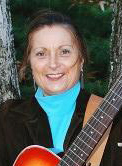 Of course, I recall my first attempts twenty or so years ago trying to explain to various academics my ideas. Neuroscience and brain chemistry fields really didn’t exist then, so usually my ideas were received with a raised eyebrow, leery glances, and silence. My first writing professor, Leonard Gilley, always said that perseverance was a writer’s mainstay. I continued to seek and cultivate my voice as a writer and in so doing I was met with profound adversity, and opportunities.
Of course, I recall my first attempts twenty or so years ago trying to explain to various academics my ideas. Neuroscience and brain chemistry fields really didn’t exist then, so usually my ideas were received with a raised eyebrow, leery glances, and silence. My first writing professor, Leonard Gilley, always said that perseverance was a writer’s mainstay. I continued to seek and cultivate my voice as a writer and in so doing I was met with profound adversity, and opportunities.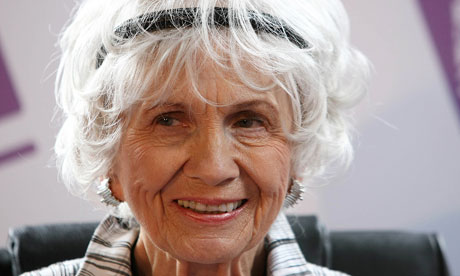 Peter Englund, the permanent secretary of the Swedish Academy, made the announcement today in Stockholm, calling Munro a "master of the contemporary short story." Munro, who lives in Clinton, Ontario, and whose work often deals with small-town life and the complicated relationships between women and men,
Peter Englund, the permanent secretary of the Swedish Academy, made the announcement today in Stockholm, calling Munro a "master of the contemporary short story." Munro, who lives in Clinton, Ontario, and whose work often deals with small-town life and the complicated relationships between women and men, 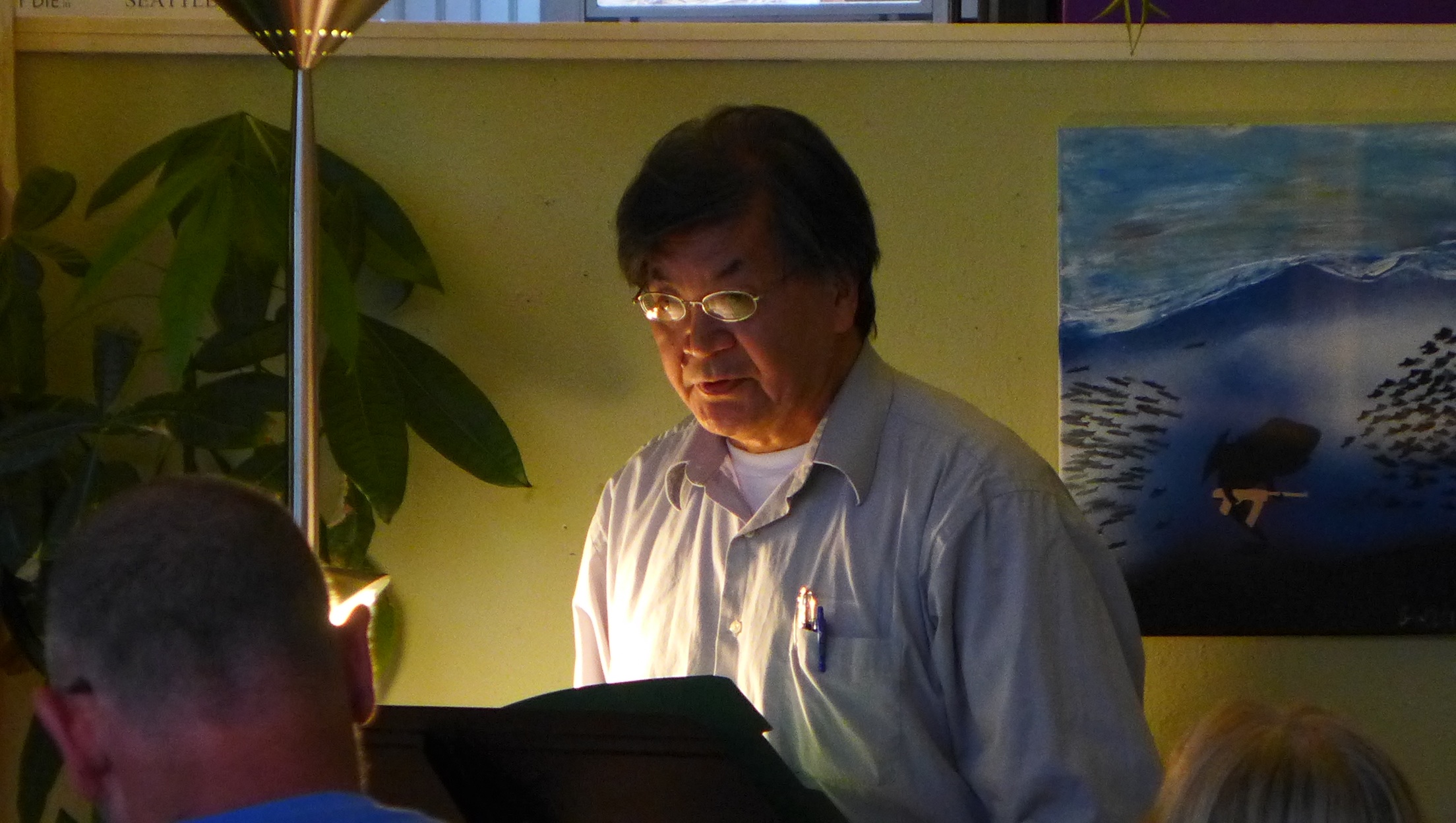 It might sound like a stretch, but poetry saved my life—along with the care of psychotherapists, the kindness of my dear friend Betty Irene Priebe, and a continuous parade of literary friends.
It might sound like a stretch, but poetry saved my life—along with the care of psychotherapists, the kindness of my dear friend Betty Irene Priebe, and a continuous parade of literary friends. 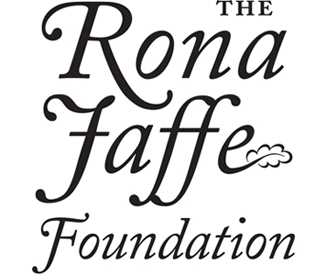 The Rona Jaffe Foundation Writers’ Awards program was established by author
The Rona Jaffe Foundation Writers’ Awards program was established by author